On 29 Nov, 1979, Pope John Paul II in his Bull Inter Sanctos, proclaimed St Francis of Assisi the patron of ecology. St Francis is best characterised as an ontological poet and a nature mystic who discovered the inter-relatedness of all beings through a spiritual journey of conversion, penance and praise. It is important for us to see the necessity of both the internal spiritual encounter and the external ecological effect of his spiritual journey for they point the way to our own conversion.
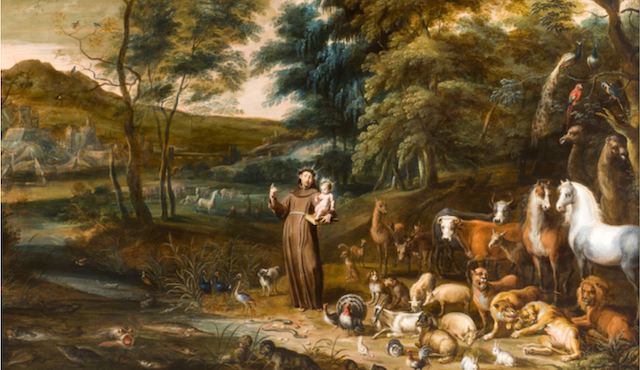
What was it that enabled Francis to be kin with all of creation? What gave him the strength to set aside the human tendency towards subordination or domination? What enabled him to be utterly available and completely focused on the needs of others? As St Bonaventure stated, “Francis was able to return to a state of primaeval innocence – a place full of mutuality and relationship with God and all creatures.” Choosing to live the Gospel, Francis came to know God and to know his truest self. Franciscan theologian Regis J Armstrong holds that Francis used three primary pathways to come to know God ever more intimately – Penance, Poverty and Prayer.
Penance. The Testament of Francis bears witness to his call from God to do penance, that is to embrace a life of loving relationship with God, to see the world as an expression of the Creator’s goodness and to live in hope of the fulfilment of the reign of God. His life of penance was a journey of faith which culminated in conversion. He experienced a new way of knowing and a greater sensitivity to the voice of God within himself and all of creation. More importantly, this conversion led to action. In his Testament, Francis described his embrace of a leper – a point of true conversion in his life. At that moment, he became conscious of God’s unconditional generosity and he responded with a heart sensitive to misery. St Bonaventure talked about other encounters with beggars and he called Francis’ responses acts of pietas – acts of devotion to God and of compassion. Penance is a process of engaging in a spirit-filled life which draws one to the very heart of God. Would we be in an ecological crisis today if you and I lived as Francis lived; with a heart sensitive to misery?
Poverty. Once one has caught a glimpse of the infinitely loving and gracious God, one is confronted with one’s human limitations of sin, arrogant self-centredness, an unhealthy lack of self-confidence and the deceptions of one’s own biases and prejudices. In his 2nd Admonition, Francis taught that the fall of humanity into sin had everything to do with human desire to grasp things and use them in an arrogant and selfish manner. Anotheraspect of poverty is material poverty. For Francis, this was an outward sign of an inward reality — spiritual poverty — and more importantly, an outward sign that led to a deeper reality. As we embrace material poverty more seriously, God alone becomes our treasure which we can both treasure and give away. What if our world leaders, corporate leaders and others had Francis’ sense of material poverty? How different might life be?
Prayer. Francis reminds us that we are empowered to see, know and believe by the same Holy Spirit which animates the very life of God’s self. Indeed, the Holy Spirit enables Christians to recognise the bread and wine of the Eucharist as the Body and Blood of our Lord Jesus Christ, and it enables us to perceive ordinary earthly things as reflections of God. St Bonaventure used a Latin verb “contueri” to describe the capacity to grasp and know things beyond what can be seen. When one knows something through the Holy Spirit, one contuits the particulars such as the size, shape, colour, smell of a rose for example, and also the eternal reasons in those particulars – the love of God the Creator, the beauty of the rose. The more deeply Francis lived in the life of the Spirit, the more he grew in his capacity as a contuitive, delighting in the world as the revelation of the divine. Prayer then must be the starting point of our faith life and also its culmination. For the person who views the world with the eyes of the Spirit, every moment becomes an occasion of contemplation.
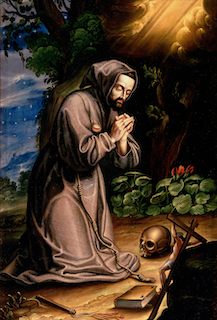
In the earlier Rule, chapter 23, Francis wrote, “Therefore, let us desire nothing else, let us want nothing else, let nothing else please us and cause us delight except our Creator, Redeemer and Saviour, the only true God, Who is the fullness of good, all good, every good, the true and supreme good, Who alone is good, merciful, gentle, delightful, and sweet, Who alone is holy, just, true, holy, and upright, Who alone is kind, innocent, clean, from Whom, through Whom and in Whom is all pardon, all grace, all glory of all penitents and just ones, of all the blessed rejoicing together in heaven.” What if our response to God’s love was as total and spirited as Francis’? Would we destroy the fertile soil or pollute the ground waters of our farmland for the sake of money?
Through the threefold pattern – penance, poverty and prayer – we too can be transformed and converted, and then repeatedly recycled through the process to move ever more deeply into the heart of God. Thomas of Celano in the first generation of Franciscan theologians understood St Francis and St Clare to be the embodiment of this eco-theology. As God in Christ looks lovingly upon humanity and its vulnerability,so too must we reach out to the lepers of our day – the poor, the oppressed, the forgotten, the polluted environment, the threatened species. We must value the entire cosmos, and cherish its every member and its particularity for its own sake as they each reveal something of God who is good, totally good.

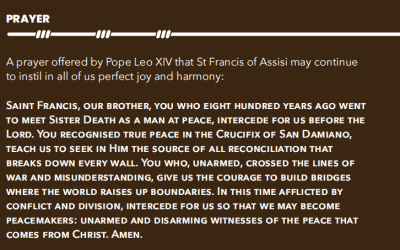
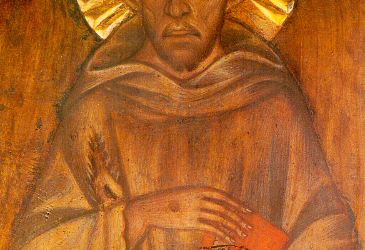
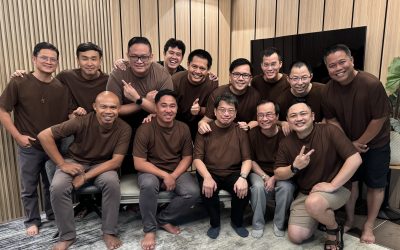
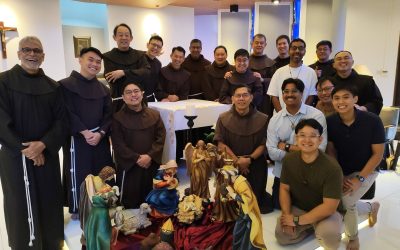
0 Comments